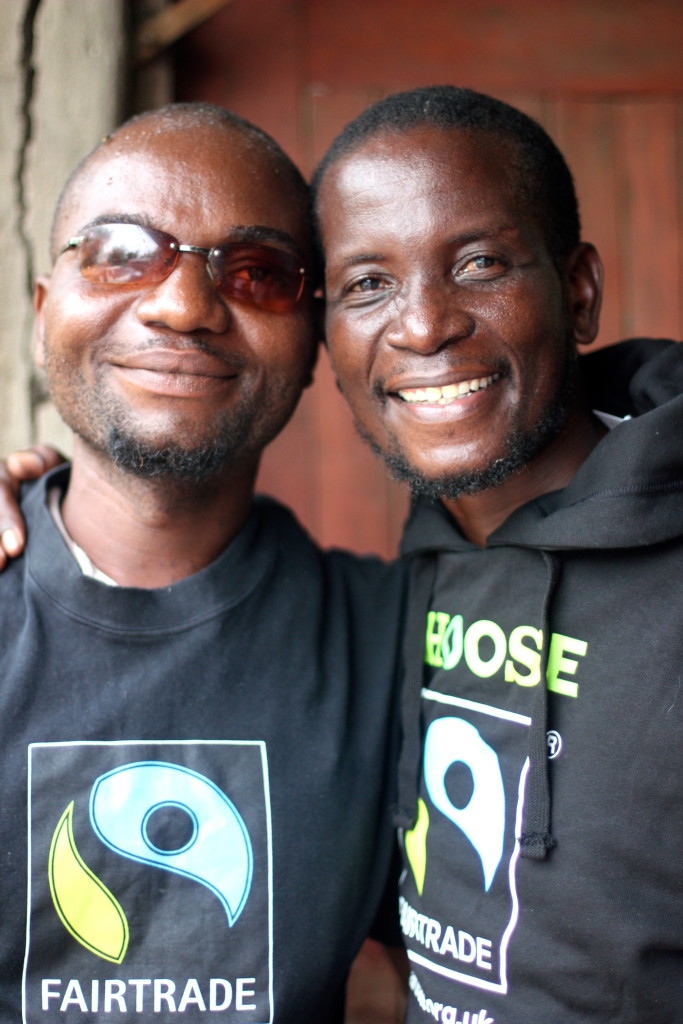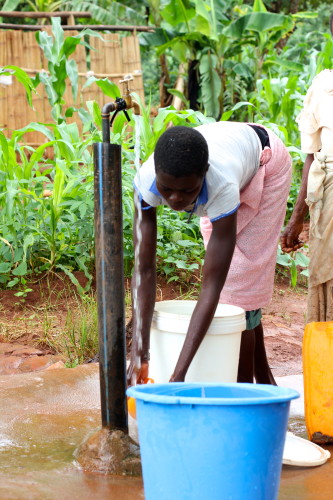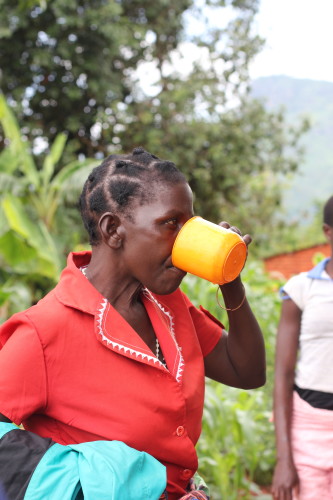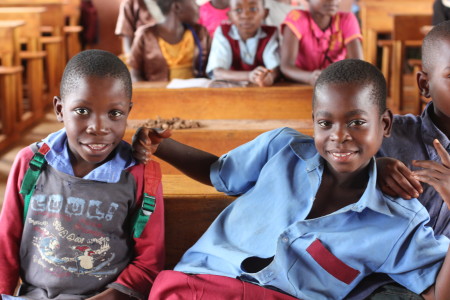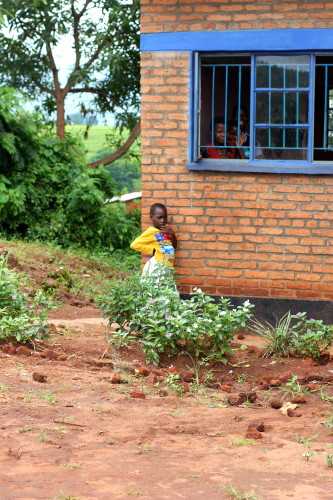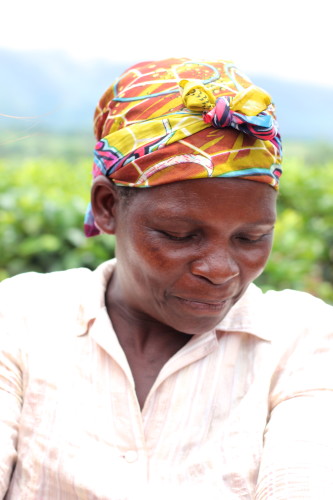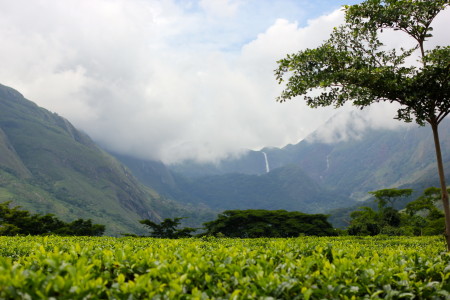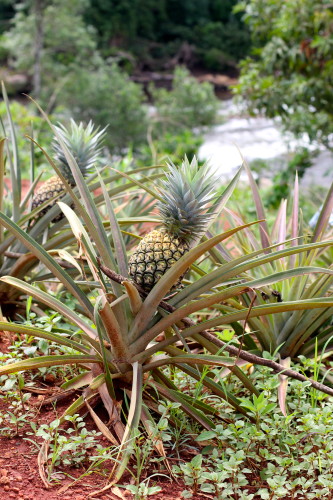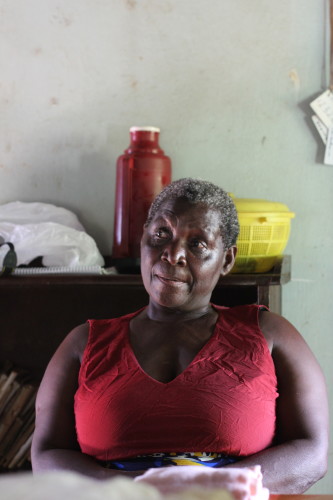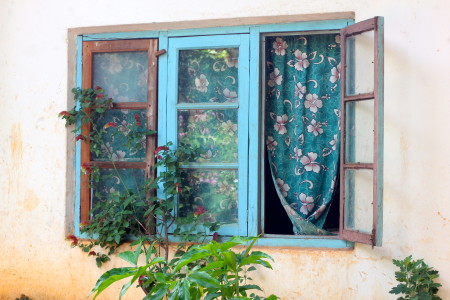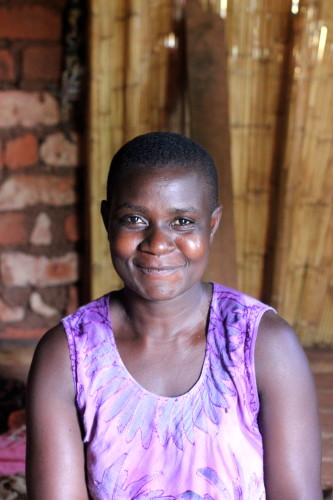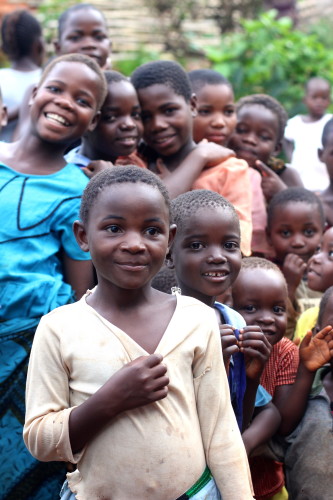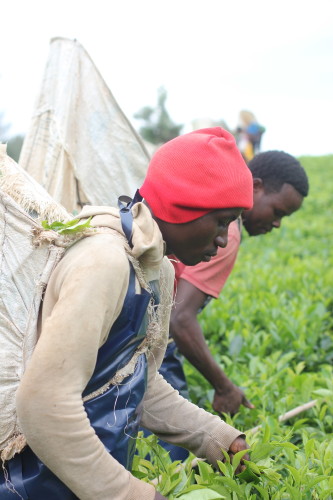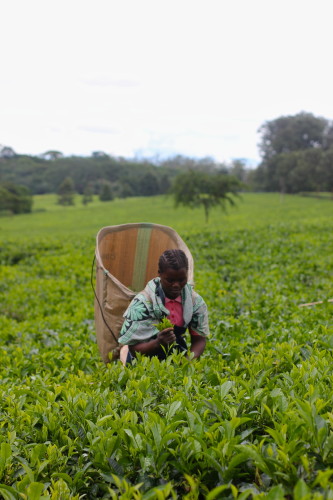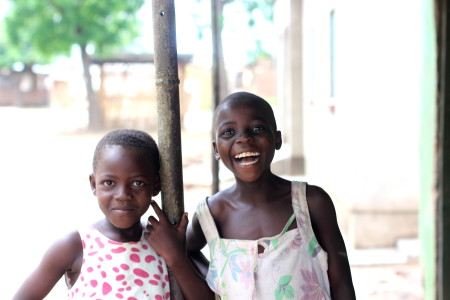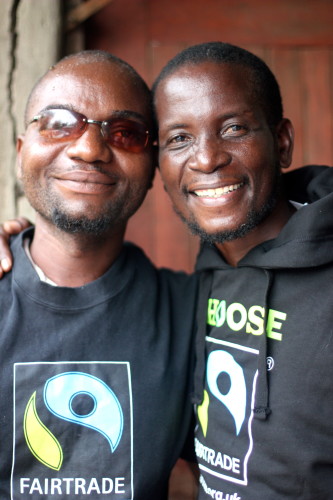Back in January I visited Malawi with Fairtrade to learn more about the people behind some of the food and drink we consume every day. Anyone who knows me really well knows that I’m not really worth knowing until I’ve had my morning cup of tea: I’m a tea addict, and I’m not alone: Britain drinks 60 billion cups of tea a year, that’s a whopping 165 million cups a day. So I was particularly interested to find out more about how it’s farmed, and the issues affecting the farmers who provide our tea.
Despite the amount of tea I consume, I’ve never delved particularly deeply into tracing the supply chain that makes those daily cups of tea possible, but after visiting various farms and tea plantations across Malawi I’ve come back more convinced than ever about the need to buy Fairtrade.
The tea plantations we visited were unbelievably scenic – Malawi is a lush and green country of outstanding natural beauty, but life is really tough for most of the population, who live rurally. Nearly 75% of the population is classed as living in poverty, on less that $2 a day. This is so unnecessary. The global tea industry is worth 7billion pounds but most of its farmers live in poverty because prices are driven down by large corporations, and tea is seen as a ‘loss leader’ – which drives the price down further. The farmers suffer because they lack power to negotiate – they’re not asking for charity, just to be paid a fair price – something we all expect for our hard work (and tea farming is serious graft).
Fairtrade is helping these communities to develop through ensuring a fair price for their hard work. One of the most compelling things I did in Malawi was to meet the female farmers who are part of a tea farming female cooperative on Mount Mulanje called the Sukambize Association Trust.
The co-operative started in the year 2000, an association of about 100 farmers. Today, 9,000 people are cultivating tea in this region – on Fairtrade terms since 2008. Remarkably: 70% of the co-operative members are female because in this part of Malawi, land is passed down to women.
These women own the land they farm on, and work together as a cooperative, proudly farming and providing for their families. When I met them they were genuinely jubilant with a real camaraderie between them – they were so happy that we were there from Fairtrade and were singing songs about how Fairtrade has made a difference to their lives.
For the Sukambize women, Fairtrade has meant that they have a guaranteed base rate for their tea (1.11 per kilo, 30% more than at a normal, non Fairtrade auction), even if the market slumps, and the premium – the 40p charged on top – has funded so many community projects that make a life-changing difference to them. With the premium, the money is paid into an account for the cooperative and they get to decide which projects they want and which are most important to their existence.
I saw a maternity unit that was built with Fairtrade premium in the community. Before this, women would give birth at home or in vehicles on their way to the hospital which was 40km away which was obviously very dangerous and resulted in a high infant mortality rate.
I also saw fresh water pumps (pictured) that mean they have ongoing access to fresh clean water from the mountain. Before they would have to walk for up to 5km, taking them out of the field and lowering their earning capacity. In the rainy season, the water was often brown and muddy, the road particularly cumbersom and residents from the village were often ill. Today is better. Everyone can pump in the fresh water fresh water for free.
It’s also funded schools and educational bursaries that are helping them to educate their young and a bridge across a gorgeous but treacherous river that they used to have to cross on foot with their tea on their backs. They danced with joy across the bridge and even got us dancing too, though thankfully I don’t think there are any photos of that.
I met remarkable 70 year old tea farmer Esme Kamwendo (pictured) who welcomed us into her home. She started farming tea in 1993 after her husband died. Her house is simple but tastefully decorated and shows modest prosperity in one of the world’s poorest countries. She is part of the Sukambizi Fairtrade tea co-operative.
Esme lives with her mother, youngest daughter who is also a tea farmer and her two children. Four generations live together in four rooms, but Esme’s other children are educated and work in the cities as teachers and at an IT company. Outside you can see her green fingered skill as she has a pretty garden – plants in old paint cans and a tree heavy with avocados.
When I asked her what would improve her life, she said electricity – 95% of farmers don’t have electricity, though Fairtrade is helping to install solar panels to power lights, mobile phones and to listen to local music in the evenings and drink cold drinks. Her village also has a water pump which was installed several years ago.
Esme was so pleased to welcome us that she slaughtered a chicken in our honour – as is tradition in Malawi, and cooked it up into a delicious flavourful stew with nsima – a local staple of ground corn similar to polenta. It was incredibly generous of her and she was keen for us to spread the message about Fairtrade. She and her fellow farmers hope that in the future more people will buy Fairtrade tea, and also that one day the Sukambize cooperative will own their own factory for processing tea – adding value to their product.
But it wasn’t all as uplifting as meeting Esme. At Satemwa, a privately owned tea estate in southern Malawi, the first tea estate to be Fairtrade certified in Malawi, they have seen a drastic drop in the demand for Faitrade tea, as fewer people are buying tea, or Fairtrade tea. More certifications and increased competition for market share means they’re competing for a dwindling slice of the same pie.
This means for them that some of the community projects that were previously Fairtrade Funded, like educational bursaries, are dropping off. Education is the key to helping these communities lift themselves out of poverty, and equip them with skills and agency to understand how to improve their lives and how trade and farming works, putting them in a stronger position.
Fairtrade is a certification that offers these farmers a fair deal, and chance for a better future, and it’s more crucial than ever that we support it. It’s so much better than having to sell to multi-nationals at rock bottom prices. I travelled to Malawi with Lizzie Rivera, a journalist who has written this brilliant piece for the Independent, well worth checking out.
It’s currently Fairtrade Fortnight and to raise awareness Fairtrade has created this hard-hitting video to get people thinking about whether their consuming habits are feeding exploitation.
You can follow more from Fairtrade here:
· Instagram: @fairtradeuk
· Facebook: @FairtradeFoundation
· Twitter: @FairtradeUK
